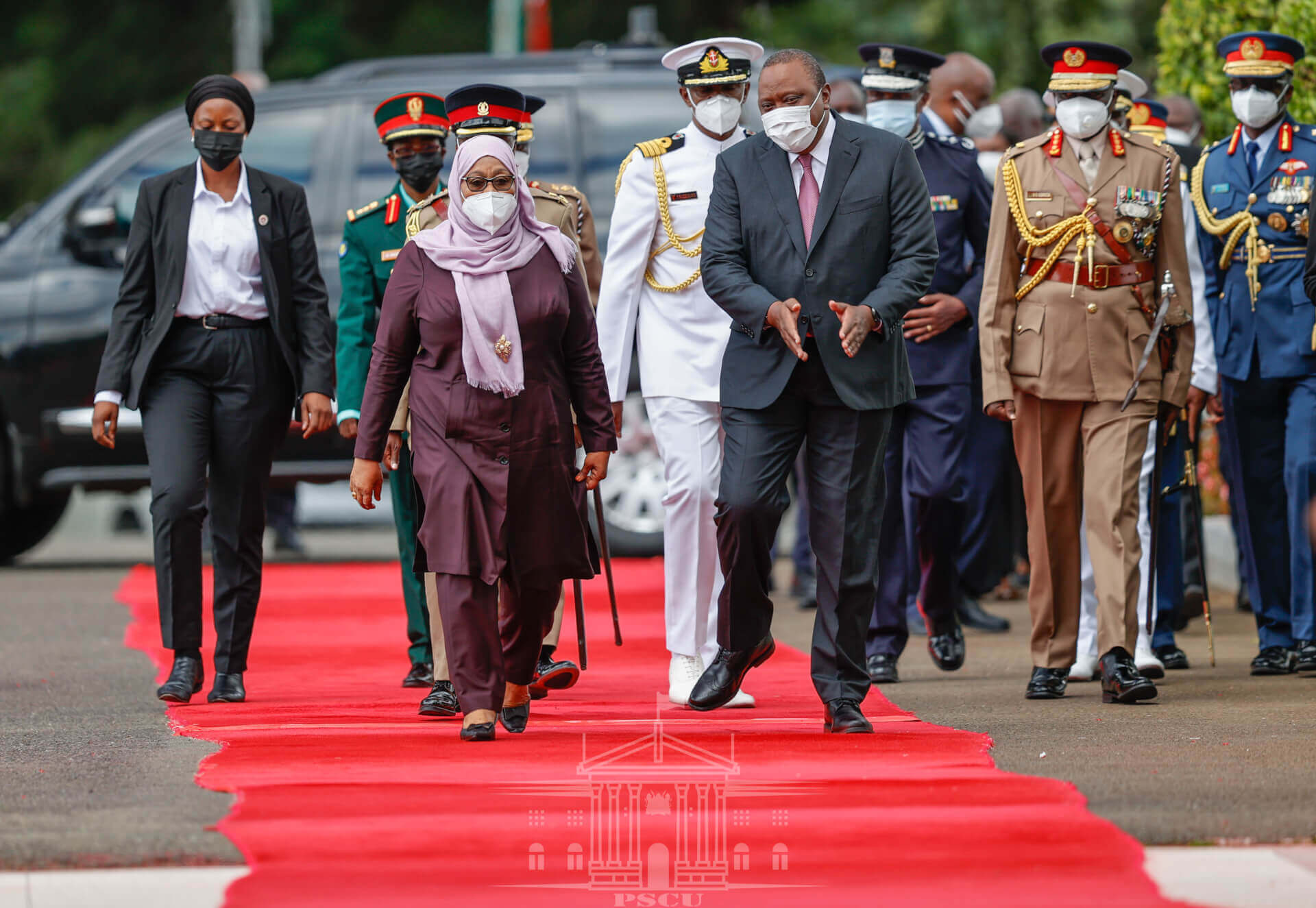On Tuesday, Tanzanian President Samia Suluhu Hassan met with her Kenyan counterpart Uhuru Kenyatta in Nairobi and signed an agreement to begin work on a gas pipeline that will run from Dar es Salaam to Mombasa. The signing of the MoU on Cooperation in Natural Gas Transportation now allows the countries’ energy ministers to initiate deliberations over “design, cost, and other logistical needs.” At a joint press conference following their meeting, the pair said that they had agree to build more “interconnecting infrastructure” between the two neighbouring countries to facilitate greater trade.
Suluhu welcomed the signing of the “long-term project”, which she said would “ease the transportation of key energy resources”. Meanwhile, Kenyatta said, “We are connected by a common culture; we have a common language and heritage. We do not take Tanzania just as a neighbourly country; we consider it a brotherly country,” adding, “We have agreed to work on the main highway between Malindi through Lungalunga to Bagamoyo.” This forms part of Kenyatta’s larger plan to “strengthen aviation, railway, sea and lake transport, and road” connectivity between the two countries.
Kenyatta further said that they are also working to resume transportation services on Lake Victoria to allow for the free movement of “people and goods from Jinja to Kimusu, and to Mwanza and Bukoba.” This includes the removal of non-tariff barriers (NTBs) at border checkpoints.
Kenya currently has 513 investments in Tanzania that are collectively worth $1.7 billion and employ around 51,000 people. Tanzania, meanwhile, has 30 companies in Kenya that are worth around $180 million and employ around 2,640 people.
In fact, Hassan was joined by 50 Tanzanian businesspeople and government officials to meet business leaders in Nairobi to Tanzania’s current trade deficit of over $35.8 million with Kenya after recording a surplus of $90.2 million in 2017. Tanzania complains that this downturn in trade can be attributed to the restrictions placed on its access to the Kenya Revenue Authority and the country’s port systems, which increase NTBs and the overall cost of doing business.
Tanzania’s pipeline deal with Kenya represents the second such agreement it has reached in April. Earlier this month, Hassan and her Ugandan counterpart Museveni met in Kampala to sign a deal with international oil giants Total E&P and CNOOC for the $3.5 billion East African Crude Oil Pipeline (EACOP), which will connect the oil-rich Hoima region in Uganda with the Indian Ocean via Tanzania’s Tanga port. It is thought that the pipeline will be the world’s longest electrically heated crude oil pipeline.
Tanzania and Kenya Sign Pipeline Deal and Agree to Remove Non-Tariff Barriers
Tanzanian President Samia Suluhu Hassan welcomed the signing of the “long-term project”, which she said would “ease the transportation of key energy resources”.
May 5, 2021

Tanzanian President Samia Suluhu Hasssan (L) and Kenyan President Uhuru Kenyatta SOURCE: PSCU
